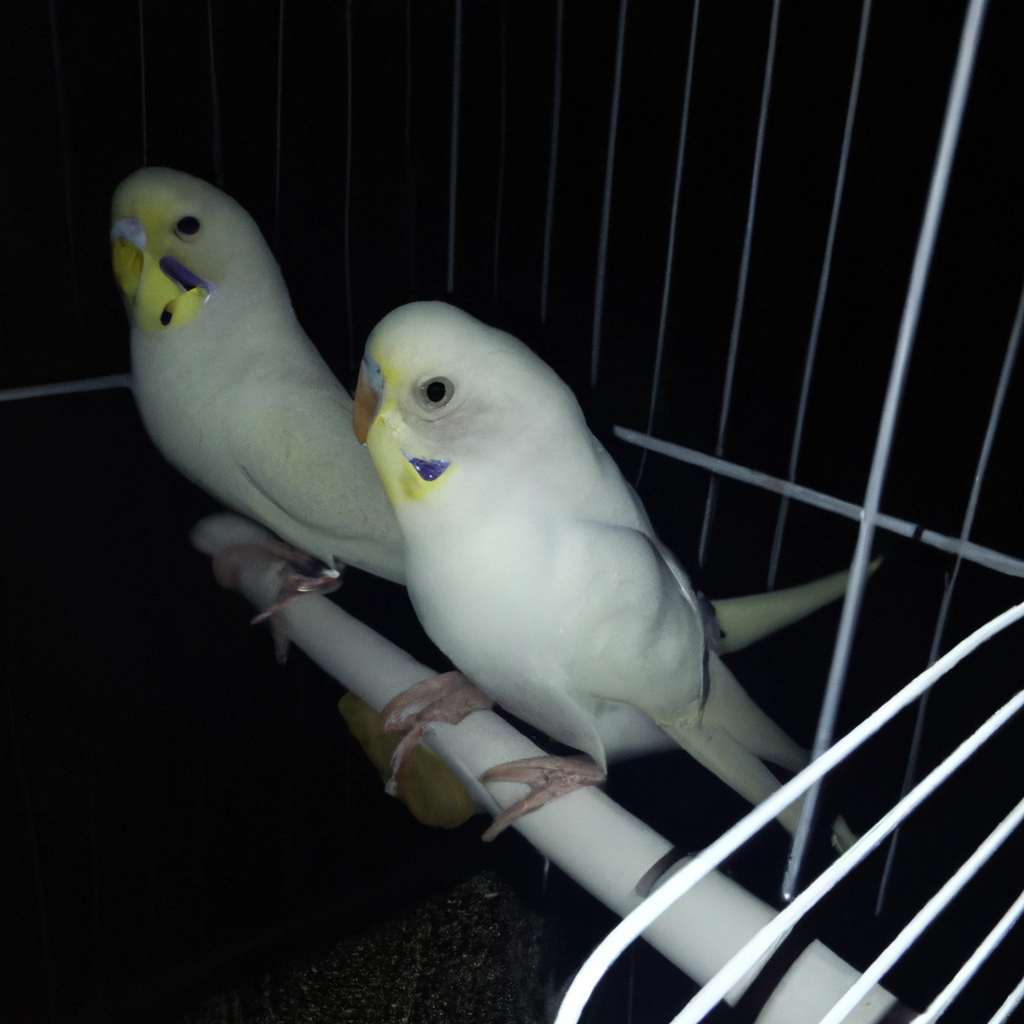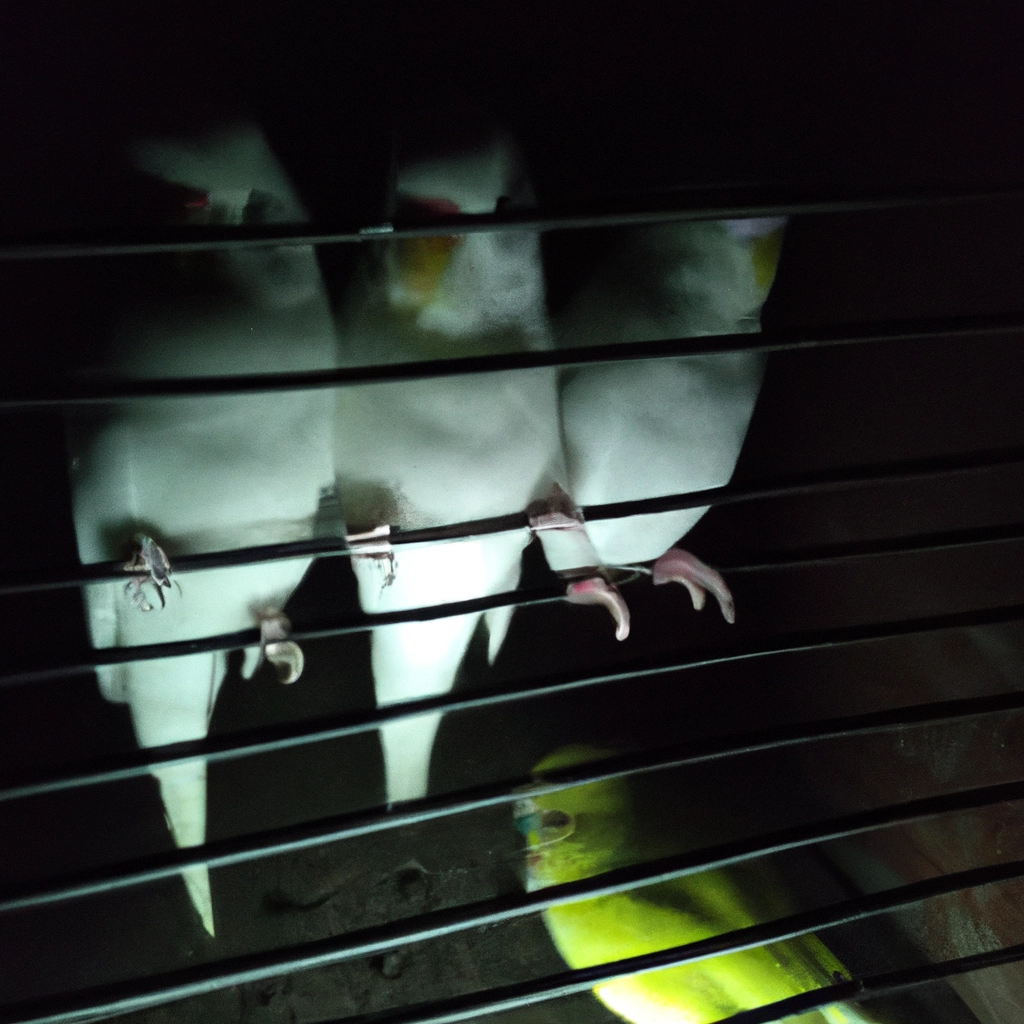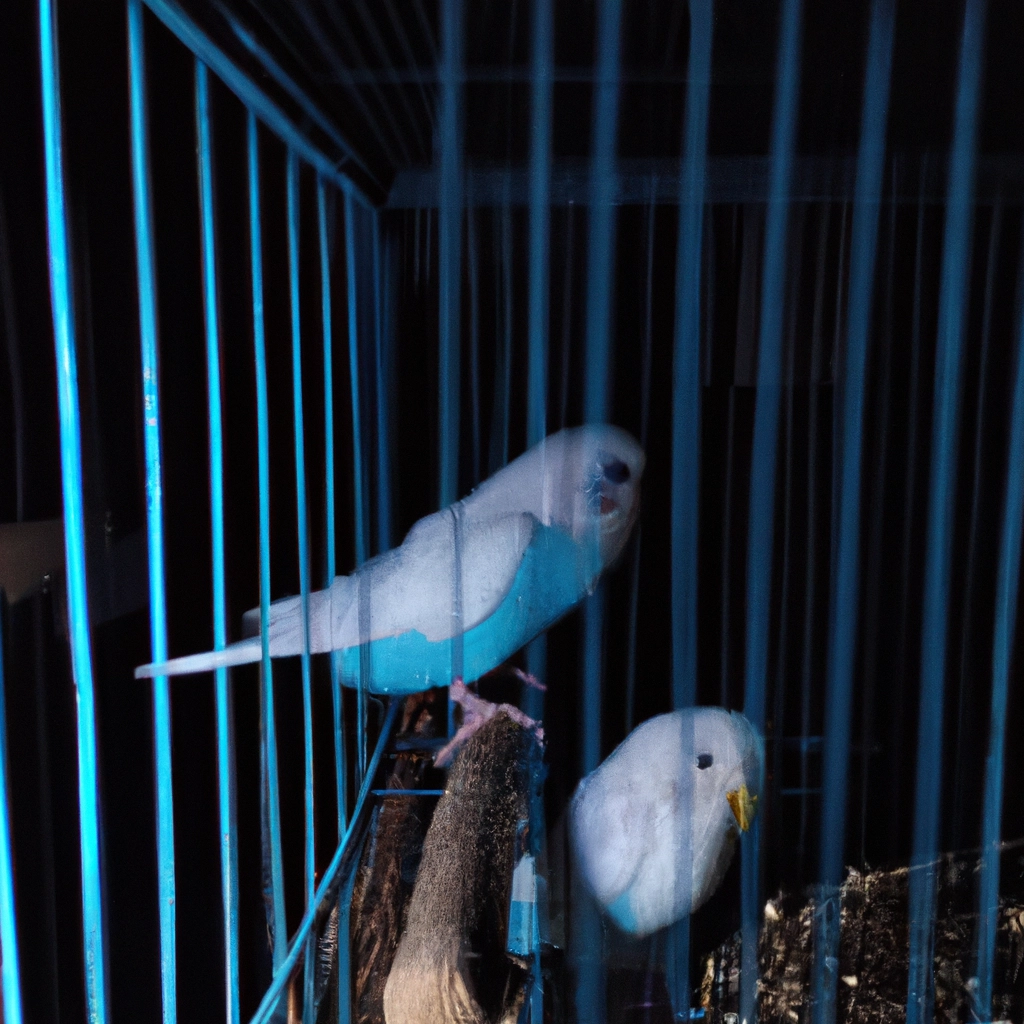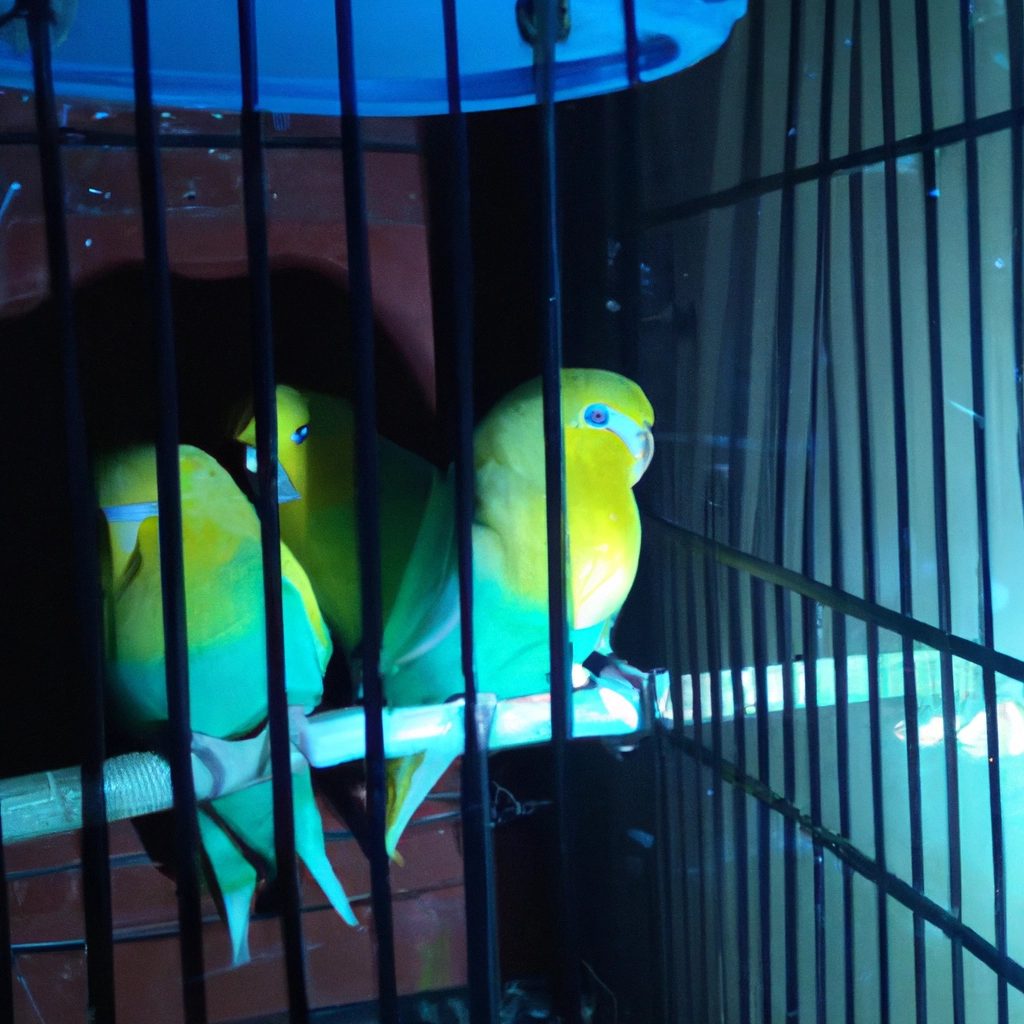| Question | Answer |
|---|---|
| Do budgies need light at night? | It is best to provide approximately 10-12 hours of darkness for budgies at night for proper rest. |
| Why do budgies need darkness at night? | Budgies, like most birds, require proper rest and sleep, and darkness at night helps them maintain their natural sleep-wake cycle. |
| Can constant light at night be harmful to budgies? | Yes, constant light at night can disrupt their sleep patterns and may lead to health issues and behavioral problems. |
| How can I provide darkness for budgies at night? | You can cover their cage with a dark cloth or use a cage cover to block out light at night. Avoid using bright night lights in the room where they sleep. |
| What are the signs of a budgie not getting enough darkness at night? | Signs may include restlessness, irritability, excessive daytime sleepiness, and a decline in overall health and activity. |
Welcome fellow budgie enthusiasts! Ever found yourself pondering over whether your feathered friends need some glow during the nocturnal hours? Well, you’re not alone! The impact of lunar luminescence on our budgies’ sleeping habits is a pretty fascinating topic for those of us smitten with our chirpy companions. Speaking from a cozy corner of experience, let me guide you through the ins and outs of avian slumber and the role light plays in it.
Budgies, those vibrant avatars of the bird realm, have a unique connection with the cycling sun. In their native Australia, they bask under the vast, open skies. So naturally, the question pops up: Should our domesticated buddies have a nightlight or be left to dream in darkness? Let’s perch on some thoughts about this!
Having spent countless evenings observing my own kaleidoscope of budgies, I’m excited to share my insights. Bend an ear and let’s talk about the lights out conundrum for these parakeets with a personal touch!
Natural Lighting in Budgies’ Habitat
A budgie’s life in the wild is a celestial ballet of dawn and dusk. These vibrant birds are attuned to the rhythm of day and night. Their internal clocks are synchronized with the sun, telling them when to chirp at the crack of dawn or tuck in as twilight blankets the sky. It’s quite a sight to behold them responding so harmoniously to nature’s signals.
During my travels down under, I had the chance to witness budgies in their natural environment. As evening descended, the once lively flocks settled down, and a hush fell over the bushland. It’s this profound tranquility that influenced how I approach the nighttime needs of my own budgies back home.
Living within the warm embrace of the Australian sun, budgies naturally retire as it dips below the horizon. Their day ends without the flick of a switch. This seamless dance with the natural cycle is a pivotal reference for us budgie keepers when setting up our pets’ home environment.
Artificial Lighting in Budgies’ Cage
When our winged friends are snug within the comforts of our homes, we take the mantle of mimicking the sun’s journey. The artificial suns we hang above their cages can make or break their circadian rhythm. It’s quite the responsibility!
Let me tell you a tale of when I first experimented with lighting for my budgie brigade. The various bulbs and timers available were enough to make my head spin! After a series of trials and a bit of error, I discovered the right balance that seemed to keep my feathered pals perky during the day and peacefully perched at night.
The key was replication of their natural cycle. Setting up a predictable pattern of light during the day and respecting the need for darkness at night was the breakthrough. Budgies, just like us, revel in routine, and it’s our job to provide it through smart lighting choices.
Effects of Light on Budgies’ Sleep
A well-rested budgie is a happy budgie. Simple as that. But throw in some untimely light, and it’s like having a midnight rave in their bedroom – definitely not conducive to sweet dreams. In my house, observing how my birds reacted to various lighting scenarios at night was a real eye-opener.
There was this one night, a pesky outdoor security light kept flicking on and off, disturbing my budgies’ beauty sleep. The repeated distress from their cheeps and flutters told me all I needed to know. It’s crucial to provide a serene domain, free from sporadic bursts of light, ensuring our budgies get the undisturbed rest they deserve.
Through my trials, I learned that budgies appreciate the dark when it’s time to hit the hay. It helps them feel safe and mirrors their instinctual habits of seeking shelter in darkness. Preparing a dimming routine before bedtime can gently ease them into slumberland, just like a soft lullaby would.
Conclusion
To sum it all up, our beloved budgies are creatures of habit who thrive under the waltz of a regular light-dark cycle, much like their wild counterparts. They need clear signals that the day is ending, inviting them to rest. Play around with your pet’s environment, but keep it as close to their natural inclinations as possible for a happy, healthy budgie.
And remember, it’s not just about flicking off a switch. Take your cues from the natural world – it’s the best guide for ensuring our budgie buddies have the dreamiest of nights. If you’re keen to dive deeper into creating the best habitat for your pet, consider reading more about setting up a proper budgie habitat.
Cherish the chirps and whispers of the day, and let the quiet of the night embrace your feathered friends. Here’s to sweet dreams and even sweeter wake-up calls from your happy, well-rested budgie!
Frequently Asked Question
-
What are the potential risks of providing constant light at night for budgies?
Providing constant light at night for budgies can disrupt their natural sleep patterns and lead to sleep deprivation. This can have negative effects on their overall health and well-being, including impacting their immune system and making them more susceptible to illness. Additionally, constant light at night can also disrupt their natural breeding and molting cycles, leading to reproductive issues and unhealthy feather growth. It’s important to provide a consistent day/night cycle for budgies to ensure they get adequate rest and maintain their physical and behavioral health.
In addition to disrupting their sleep patterns, constant light at night can also cause stress and anxiety for budgies. This can lead to behavioral problems such as increased aggression, excessive vocalization, and a decrease in overall activity. It’s important to create a peaceful and natural environment for budgies, including providing periods of darkness for proper rest and relaxation.



